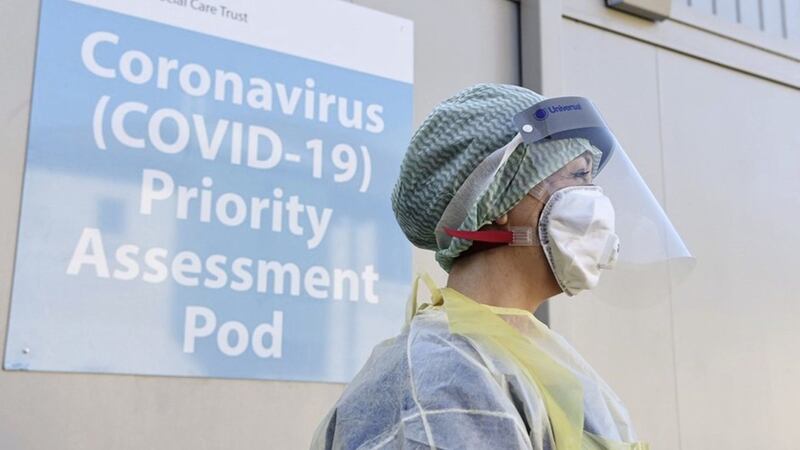NORTHERN Ireland needs to move to an elimination Covid strategy to control Covid-19.
Only an elimination strategy will allow the best chance for our healthcare system to get back to providing non-Covid care.
Even low levels of Covid-19 transmission in the community will have an ongoing ability to disrupt our health service. Trying to live alongside the virus will require further restrictions and school closures until high levels of vaccine coverage across the population has been achieved.
The advances in vaccines have been better and faster than could have been anticipated and the rollout in NI has placed us amongst the best in the world.
However, vaccines are not enough to control this virus without other necessary public health interventions.
Many people have said it isn’t possible to eliminate Covid-19. However elimination is not eradication. Elimination means that it is no longer transmitting in our community.
In early 2020, the world was in uncharted waters when trying to deal with this pandemic. One year later, the strategy that has worked in other countries is zero-Covid with elimination. We have tried to live with this virus but it has failed.
Many countries have tried the same approach and it has led to repeated lockdowns, prolonged school closures, and health services have not been protected. The disparity in the number of deaths between zero Covid countries and countries that have attempted to live with the virus is stark.
This gap will widen over time, as all-cause mortality will illustrate the additional impact on non-Covid conditions such as cancer. While vaccines are game changers, there is the very real risk that the virus will mutate to escape the current vaccines.
Vaccines can be adapted for new strains, however altering the vaccine and producing sufficient quantities will take time. This could leave us in a position of further lockdowns and school closures. The new more transmissible variants will require more severe restrictions and more people to be vaccinated to attain the same benefit.
So what would be required to eliminate Covid-19? The number of cases needs to be driven down with effective restrictions and active case finding. Northern Ireland was close to achieving this in June 2020 following the first lockdown.
The restrictions need to be augmented by effective case finding. While largescale testing of the population is helpful, strategies are needed to target resources against finding those mostly likely to have the virus. With communicable infectious diseases, this is achieved by finding contacts of cases. Contact tracing is a core function in controlling any transmissible infection. It is especially important where approximately a third of people have no symptoms.
Contact tracing needs to be fast and comprehensive. The definition of a close contact needs to be broader than it currently is to find more cases and shut down chains of transmission.
For a Zero Covid strategy, it is important to reduce introduction of new cases and importantly new more transmissible variants. Other countries have tried different approaches, but only mandatory quarantine under supervision has worked.
Single negative tests around the time of travel will fail to detect people currently incubating the virus. While many people comply with guidelines, the experience of other countries has shown that lapses in quarantine have rapidly led to large community outbreaks. Systems can be developed to maintain an elimination strategy for lorry drivers and other essential workers who must travel.
Cases and their contacts need to be supported during isolation. There is clear evidence that some people are unable to isolate. It is unreasonable and an ineffective strategy to ask somebody to isolate themselves to protect the rest of society, when the outcome for them could be homelessness or an inability to provide food for their children. That is a reality for many people in our society.
Management of infectious diseases outbreaks have similarities whether they are localised outbreaks or pandemics. Information is incomplete and that is the current position with the new variants and how they will evolve. Additional information will arrive over time and strategies need to adapt. However, there is one important principle to adhere to, always be ahead of the epidemic curve. To follow and react will fail, particularly with a virus that can increase out of control in a matter of weeks.
It is important to think ahead and then work backwards, and to make decisions now that ensure you are where you want to be in six months. New variants will come along and it is uncertain whether the new UK variant is more lethal. There is experience with two other coronavirus infections before Covid-19. SARS-CoV-1 had a fatality rate of 10 per cent, MERS has a mortality rate of 35 per cent. We should not rely on luck with Covid-19.
A Zero Covid approach with elimination as the goal is the only safe strategy one year after the start of this pandemic.



